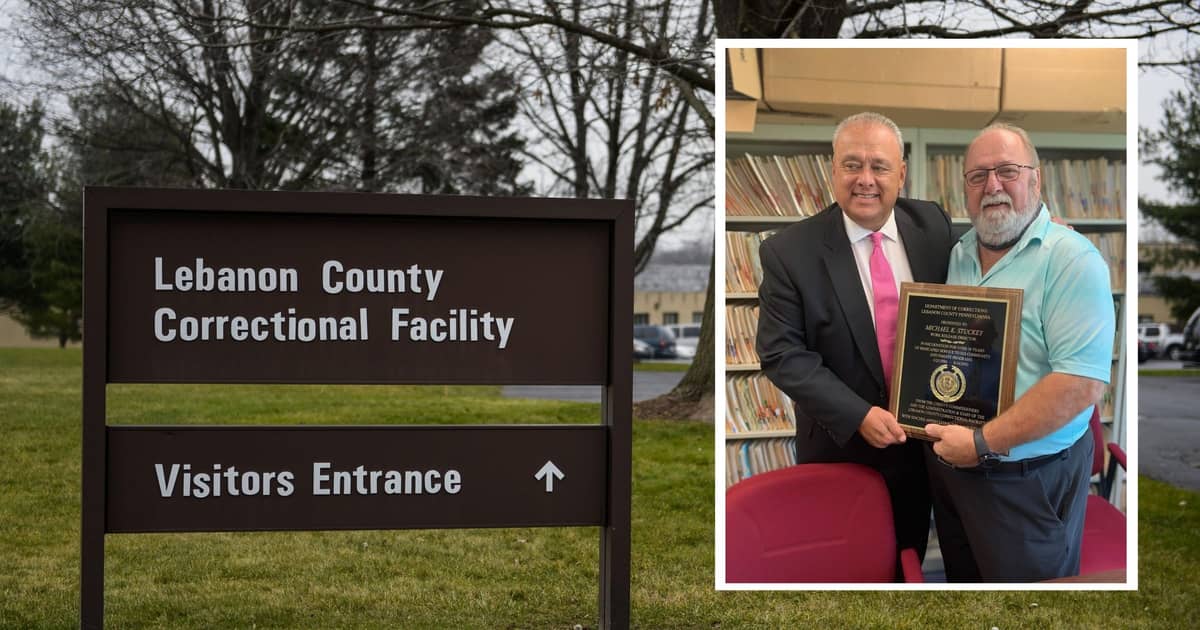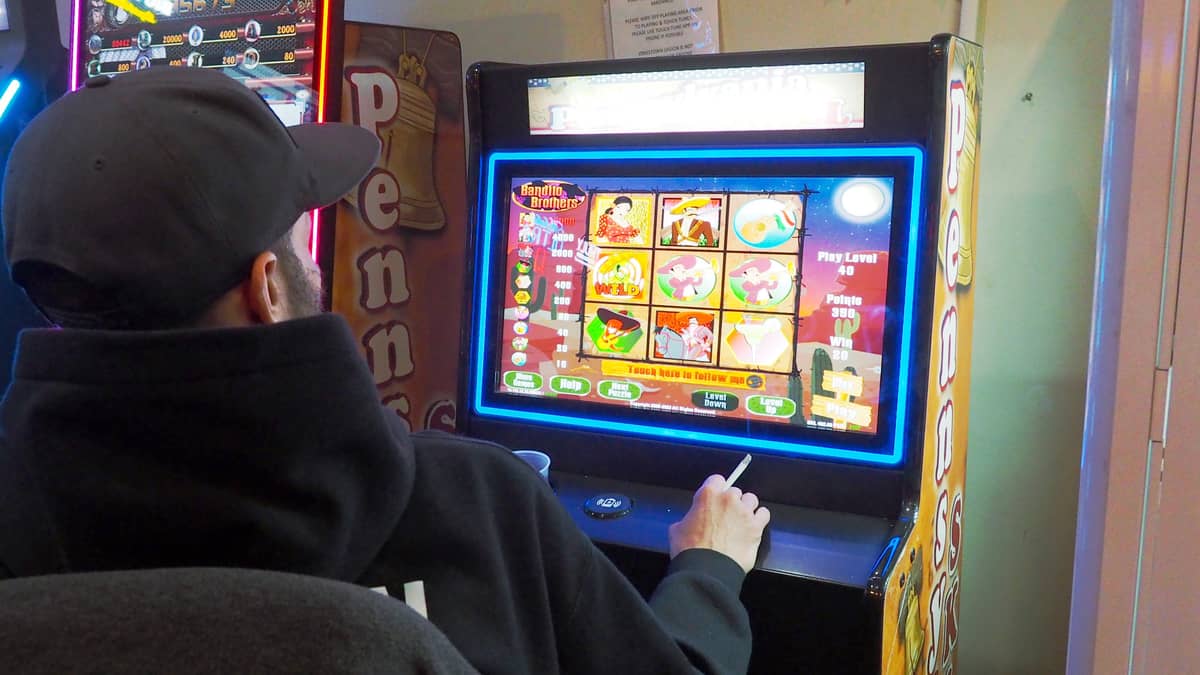Mike Stuckey began his first day of retirement just like he started every workday when he was the director of the county’s work release program.
“I posted on Facebook this morning that I got up at the regular time, took a shower at the regular time, and got in the car and headed toward Lebanon at the regular time,” Stuckey said during a telephone interview on Aug. 17, his first day of retirement.
But that’s where the first day of the rest of his life took a decidedly different turn.
“The only difference is, I stayed south on South on [Route] 72 and I am now at my camper enjoying a nice coffee and a cigar,” Stuckey added with a chuckle. “So there was a difference.”
When he left the Air Force in 1978 and returned home to Lebanon, Stuckey never envisioned he would have a career working in the county’s probation system. In fact, at that time, his life was going in the wrong direction.
“I worked at an endless number of jobs, and I couldn’t figure out what I wanted to do,” Stuckey, who lives in Hershey, told LebTown. “And to tell you the truth, partying was more important than anything else at that time in my life. I made bad decisions upon bad decisions and things just didn’t work out until ‘84, when I had pretty much hit the gamut on everything and couldn’t find anything else.”
It was then that his family had an intervention, of sorts.

“Family’s always been important to me and it was my family that said, ‘Go down to the jail and get a job there because they are hiring,’” said Stuckey, who graduated from Lebanon Catholic High School in 1974. “At that time, anyone could get a job at the jail.”
During his three interviews with prison staff, all said he had the right qualifications for the job, but they also doubted he’d stay there for very long. Their hunches almost came true.
Shortly after starting part-time as a corrections officer in March 1984, Stuckey went full-time three months later. Soon, though, he began to contemplate a different career path, enrolling in Lebanon Valley College (LVC) to obtain an associate’s degree in Computer Science.
But life has a funny way of taking you down a different road than the one you expected. While working full-time at the prison and studying part-time at LVC, he started dating a woman who was also studying at LVC.
“I was thinking about having some other career,” Stuckey said. “But it was at Lebanon Valley that I met my first wife; we eventually got married and had our first child. After we had our first child, I knew I had to work to support him.”
It was during this period of his life, in 1986, that he took on a new job as the work release assistant director, working 20 hours at that job and another 20 hours as a corrections officer while still going to college on a part-time basis.
In April of 1988, however, Stuckey made a decision that would cement his career in corrections. The director of the work release program retired and Stuckey took that position, staying there until his retirement some 36 years after he got his first job with the county.
“To tell you the truth, once I became the director of work release, I really enjoyed going to work every day of my life until this coronavirus crap,” Stuckey said. “I worked with a fantastic group of people and it was great to go to work. I had assistants that I really depended on and they made my job so much easier.”
Before the pandemic hit in mid-March, which effectively ended the county’s work release program for Lebanon County Prison inmates and helped push Stuckey to decide to retire, he amassed quite a successful record during his tenure.
Utilizing the knowledge he gained in studying computers in college, Stuckey was instrumental in getting the prison system online and making sure connectivity ran smoothly.
“The prison was introduced to computers in 1991,” Stuckey said. “I wasn’t designated as the computer person, but I quickly became the expert because I knew a little bit about them.”

Another achievement demonstrates how innovative Stuckey was when it came to running the work release program: In the early 1990s, the prison became one of the first to offer in-facility drug testing of work-release participants to expedite the process of getting test results.
“I had two different machines that we used to do drug testing,” Stuckey said. “We started drug testing at the county on a regular basis to ensure [inmates] stayed clean. We used to randomly test people by sending it to various labs, but it took a week to get the results back.”
The delay in time was not advantageous to knowing that inmates were staying clean while at work release.
“If an inmate knew he was hot, he was more than likely to leave his job to go do something else before he came back to the jail — if he even bothered to come back at all because he knew he was going to be in trouble,” Stuckey added.
Five years later, testing labs would catch up to Stuckey’s innovation and began offering much quicker results, usually within 24 hours, which saved the county money because it was less expensive to outsource than to do it onsite.

Stuckey always had a keen eye for reducing costs and saving money.
Several other initiatives he implemented helped provide revenue to the county coffers. He developed a room and board program, which collected a percentage of the money an inmate made from work release, and also charged a $10 supervisor fee so a staff member could visit inmates at their place of employment.
Stuckey explained that many inmates have families to support, and that by charging a fair wage for the privilege to have a job helped reduce the $30-a-day cost to house and feed an inmate.
“We did not want to gouge the inmates, but we did want to be fair to the taxpayers since they are the ones footing the bill,” Stuckey said. “You have to understand that we didn’t get state or federal grants and that taxpayers pay for these programs, so these were ways for everyone to pay their fair share.”
Yet another cost-savings measure was enacted when Stuckey was permitted to negotiate vendor contracts. He worked on getting a new internal phone system along with a new commissary contract with an outside vendor.
“We were working with GTL to provide telephones in the common areas for inmates to use to call their families,” Stuckey said. “During the negotiations, I said I want 20 computers, and they said sure. That allowed us to provide computers for every department and stations within the prison and to establish a computer network that was really good.”
Not only did the new telephone contract come with free computers but inmates also had to pay a small fee for the right to phone home, and the commissary contract lowered costs by having an outside vendor handle that work on behalf of the prison.
At the height of the work release program, which occurred in the mid-1990s, Lebanon County had about 150 inmates enrolled — the most of any county-operated facility in the state.
“Back when it was at its best, we were running 130 to 150 inmates on work release. It was a really large program and that really saved the taxpayers a lot of money, too,” Stuckey said.

With his career in the rear-view mirror, Stuckey, 64, looks forward to playing golf, helping a brother-in-law with his business and spending time with seven of his eight grandchildren that live nearby and that he sees on a regular basis. The eighth grandchild lives in Pittsburgh, he said.
“My favorite times are the times I get to spend with my grandkids,” Stuckey said. “I don’t necessarily have any plans moving forward, but I will be busy with stuff that I want to do and not with things I don’t want to do.”
Which is exactly how retirement should be.
Do you know a Lebanon Countian with an interesting story to share? Give us advice on what to feature next!
Give the gift of local journalism.
If you are thankful for what LebTown brings to the community, consider joining our cause as a member. Members get an inside look at our publishing schedule each week, plus invites to our members-only Facebook group and happy hours.
Sign up for an annual membership using the link below, and we’ll give you a free LebTown mug at the next happy hour.
Learn more and join now here.























